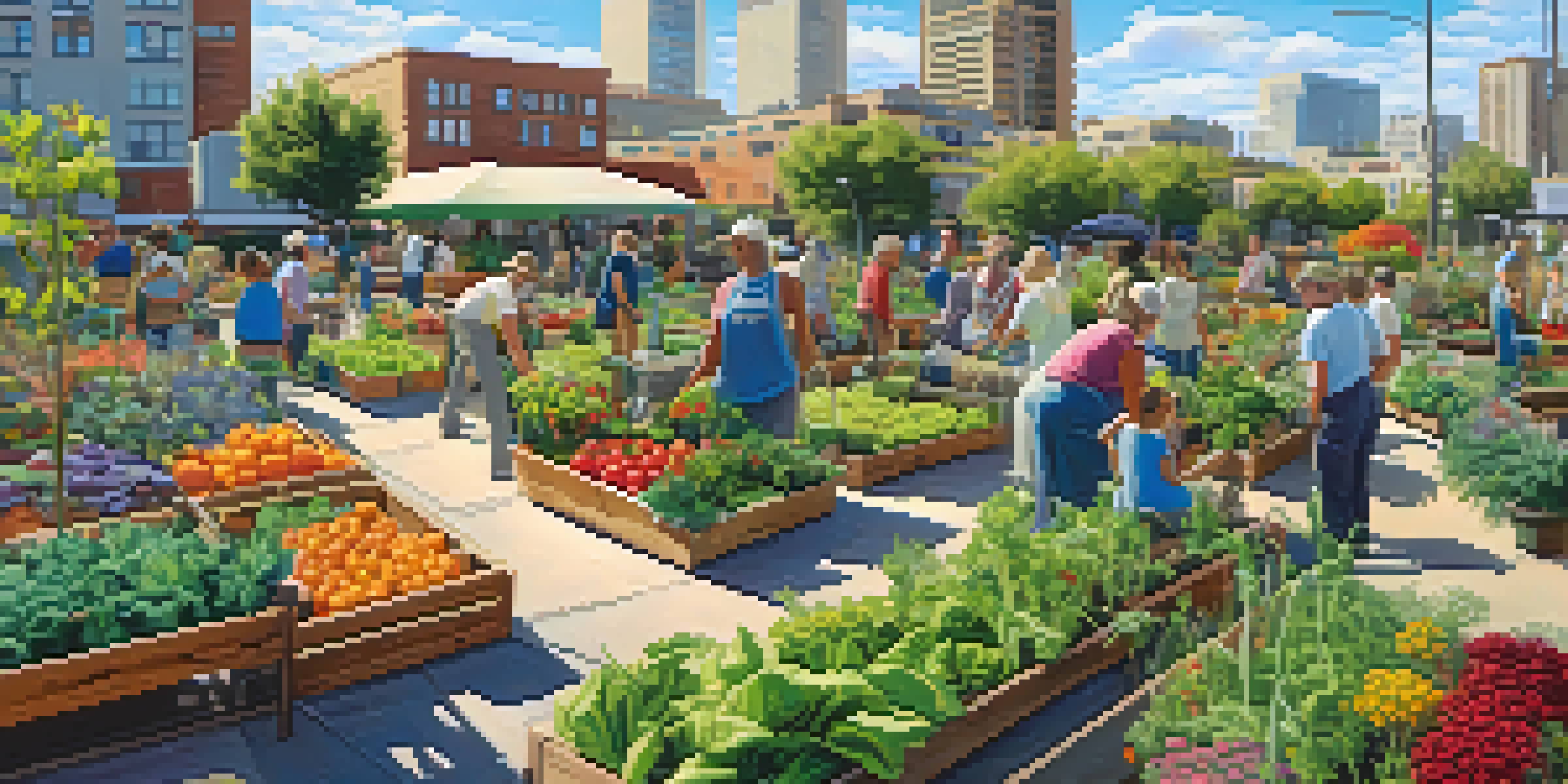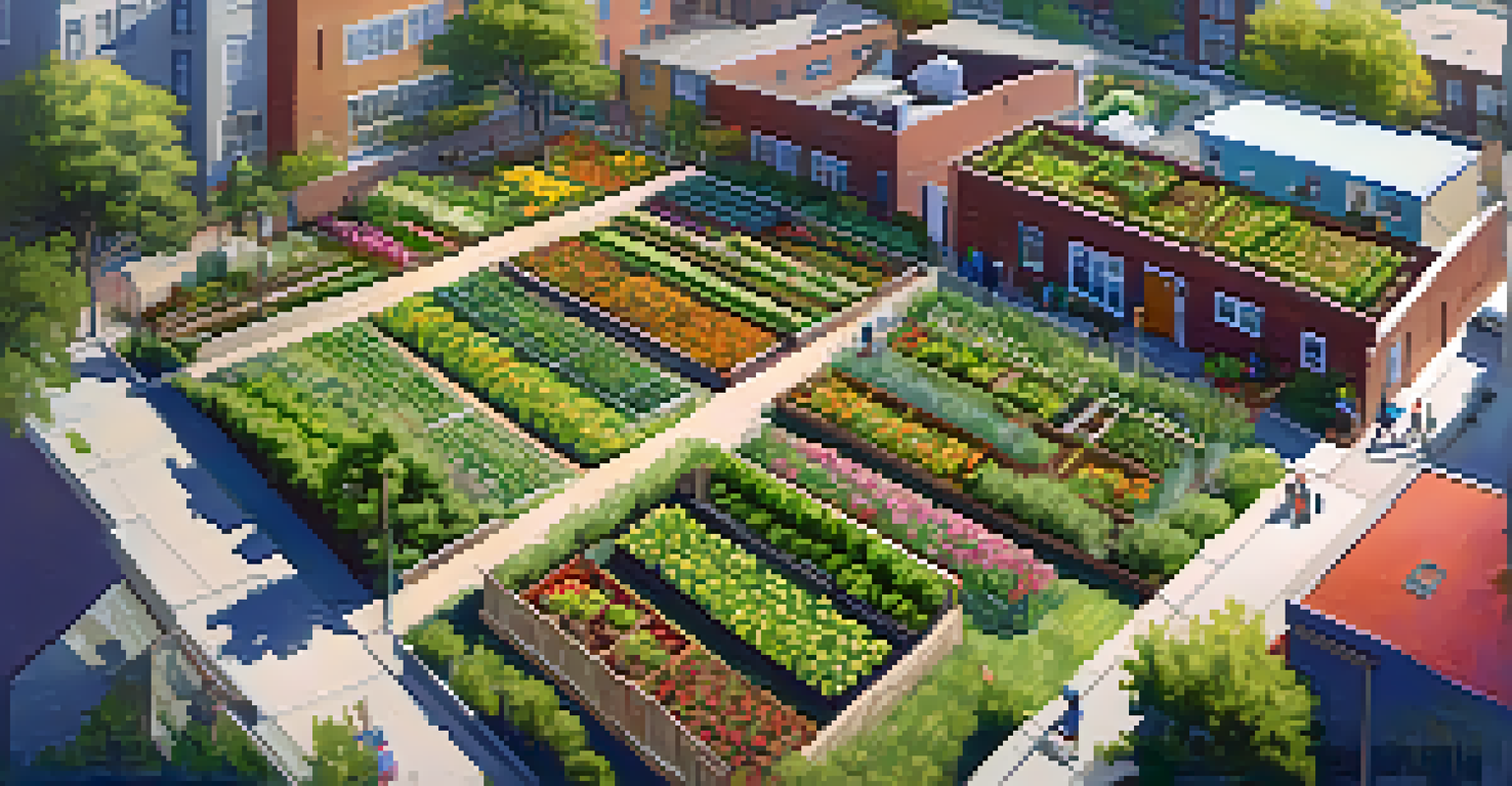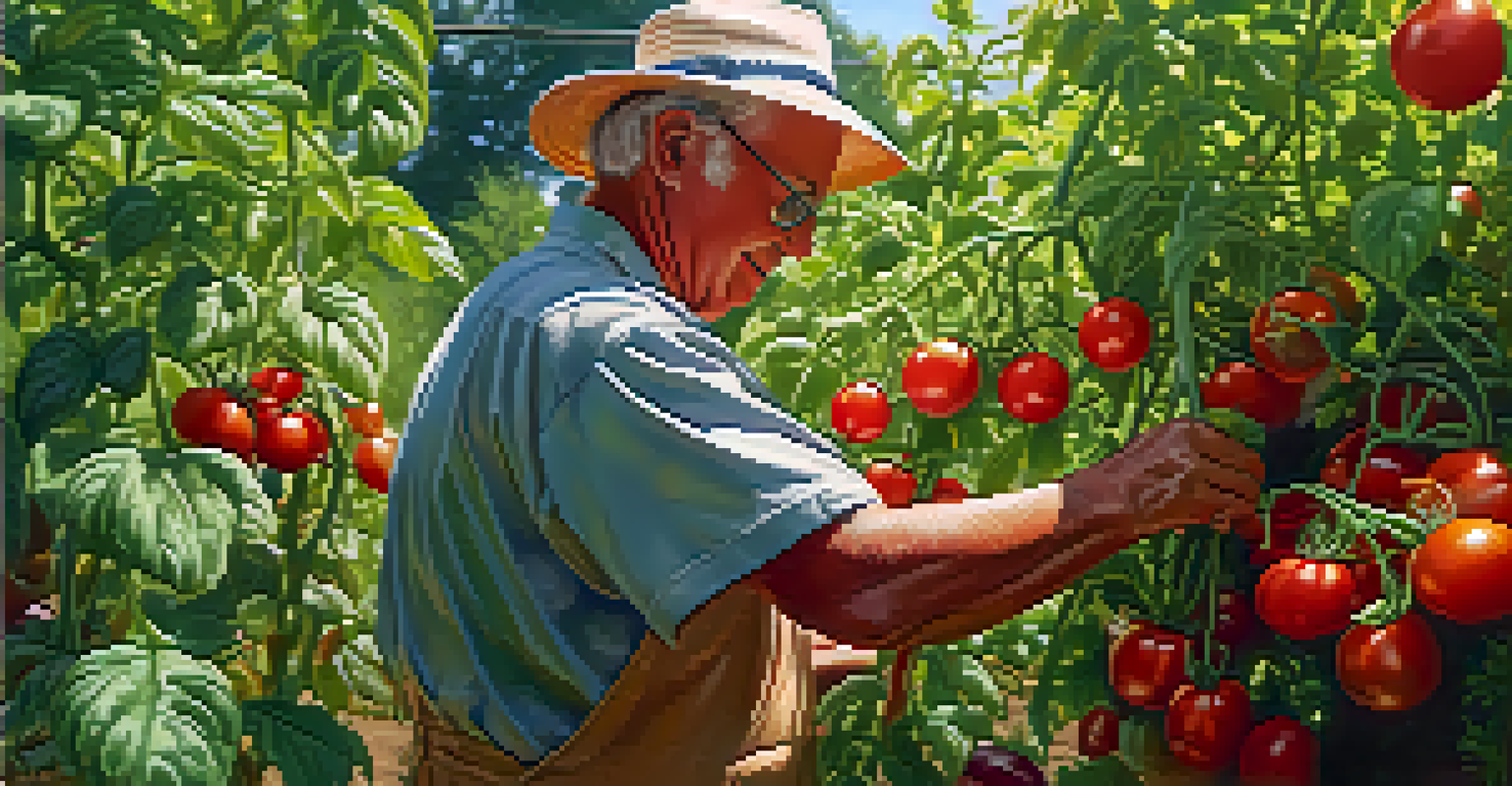The Role of Community Gardens in San Diego's Food Security

Understanding Food Security in San Diego
Food security means having reliable access to sufficient, safe, and nutritious food. In San Diego, many residents face challenges in accessing fresh produce due to various factors, including economic disparities and geographic barriers. This situation not only affects individual health but also impacts the overall well-being of the community.
Food security is a fundamental human right, and everyone deserves access to healthy food.
The California Center for Public Health Advocacy highlights that food deserts exist in several neighborhoods across San Diego. These areas lack grocery stores or farmers' markets, leading to limited access to healthy food options. This is where community gardens can play a pivotal role in bridging the gap.
By growing food locally, community gardens help provide fresh produce to areas that need it most. They create a micro-ecosystem that fosters self-sufficiency and resilience, allowing residents to take control of their food sources.
The Benefits of Community Gardens
Community gardens offer a multitude of benefits beyond just food production. They encourage social interaction, bringing together neighbors who might not otherwise meet. This fosters a sense of community and strengthens local ties, making neighborhoods more vibrant and connected.

Additionally, these gardens promote environmental sustainability. They utilize local resources and reduce the carbon footprint associated with transporting food. By growing food where it is consumed, community gardens contribute to a healthier planet while encouraging biodiversity.
Community Gardens Combat Food Deserts
Community gardens provide fresh produce in San Diego's food deserts, improving access to healthy food options for residents.
Moreover, community gardens can serve as educational platforms. They provide hands-on learning experiences, teaching individuals about nutrition, gardening techniques, and sustainable practices. This knowledge empowers residents to make healthier choices and understand the value of local food systems.
Community Engagement and Ownership
One of the unique aspects of community gardens is their emphasis on community engagement. Residents are encouraged to participate in the planning, planting, and maintenance of the gardens. This involvement fosters a sense of ownership and pride, as people see the fruits of their labor literally growing in their backyards.
The best way to predict the future is to create it.
When individuals work together in a garden, they share skills, knowledge, and resources. This collaboration not only enhances the gardening experience but also builds relationships that can lead to further community initiatives. It’s a cycle of engagement that strengthens social bonds and promotes collective action.
Furthermore, community gardens can empower marginalized groups, giving them a voice in food production and access. This empowerment can lead to advocacy for better food policies and resources, making the entire community stronger.
Addressing Local Food Deserts
San Diego has several neighborhoods categorized as food deserts, where access to healthy food is limited. Community gardens directly address this issue by providing fresh fruits and vegetables within walking distance for residents. This localized approach not only increases food access but also encourages healthier eating habits.
In these gardens, residents can grow culturally significant crops that might not be available in local stores. This not only enhances food diversity but also helps preserve cultural heritage through food. People can grow what they love and share it with their community, creating a rich tapestry of flavors and traditions.
Gardens Foster Community Engagement
By involving residents in gardening, community gardens strengthen social ties and promote collective ownership and pride.
By transforming vacant lots into productive gardens, communities can reclaim spaces that might otherwise contribute to blight. This revitalization boosts neighborhood pride and can even increase property values, showcasing the multifaceted benefits of community gardens.
Promoting Health and Well-being
Engaging in gardening has proven health benefits, both physical and mental. For instance, tending to plants provides moderate exercise, which can improve cardiovascular health and overall fitness. The act of gardening has been shown to reduce stress and promote mental well-being, making it a therapeutic activity.
Eating fresh produce from community gardens also encourages healthier dietary choices. When residents have access to fresh fruits and vegetables, they are more likely to incorporate them into their meals. This shift can lead to significant improvements in health outcomes, reducing the risk of diet-related diseases.
Moreover, community gardens can serve as a space for wellness workshops and cooking classes, further promoting healthy lifestyles. These initiatives help educate participants about nutrition and cooking techniques, ultimately leading to a more health-conscious community.
Sustainability and Environmental Impact
Community gardens contribute to environmental sustainability in several ways. They promote biodiversity by providing habitats for various plants and wildlife. This is vital for maintaining healthy ecosystems, especially in urban areas where green spaces are limited.
Additionally, these gardens often implement sustainable practices such as composting and rainwater harvesting. By using organic gardening methods, they reduce the reliance on chemical fertilizers and pesticides, which can harm the environment. This not only benefits the garden itself but also contributes to the overall health of the community.
Promoting Health Through Gardening
Engaging in gardening activities enhances physical and mental health, encouraging healthier eating choices and lifestyles.
Furthermore, community gardens can help mitigate the effects of climate change. Urban gardening reduces urban heat islands by cooling the environment and increasing green cover. This makes cities more resilient in the face of climate-related challenges.
The Future of Community Gardens in San Diego
As San Diego continues to grow, the role of community gardens will become increasingly important. With ongoing challenges related to food access and environmental sustainability, these gardens can serve as a model for innovative solutions. Community involvement and support will be crucial for their success and expansion.
Local government and organizations can play a pivotal role by providing resources, funding, and education to support existing gardens and establish new ones. Collaborations between community members and local institutions can lead to more robust food security initiatives.

Looking ahead, the potential for community gardens to transform urban landscapes is immense. By fostering a culture of gardening, communities can ensure that everyone has access to fresh, healthy food while also promoting social cohesion and environmental stewardship.